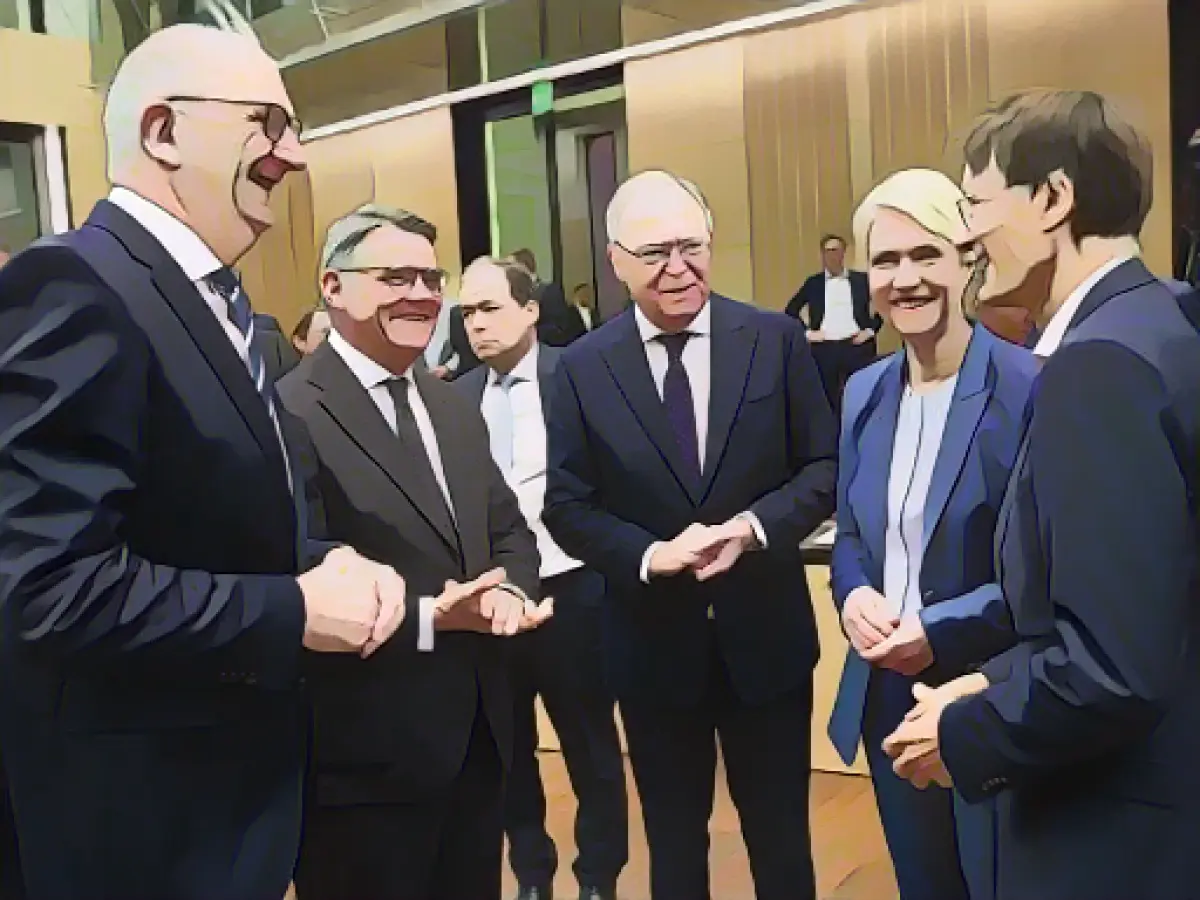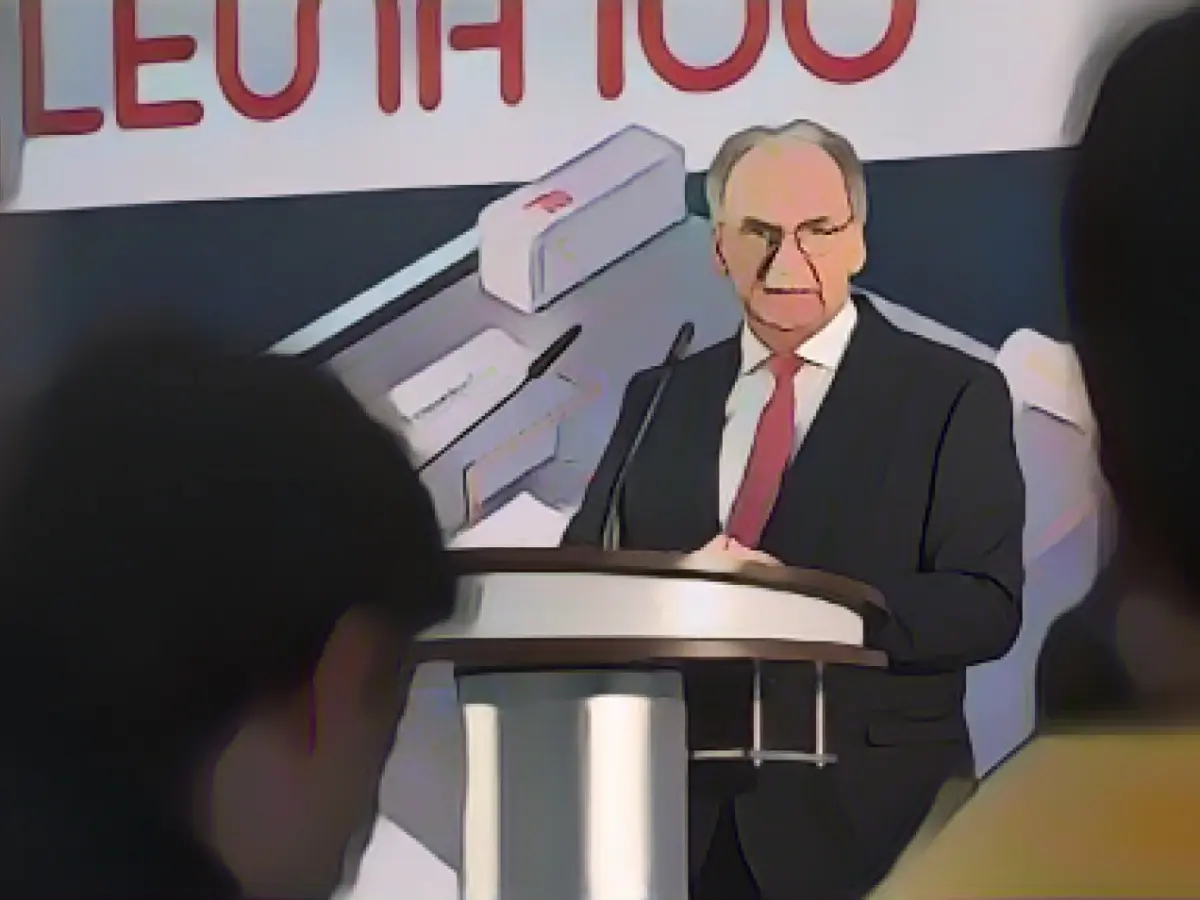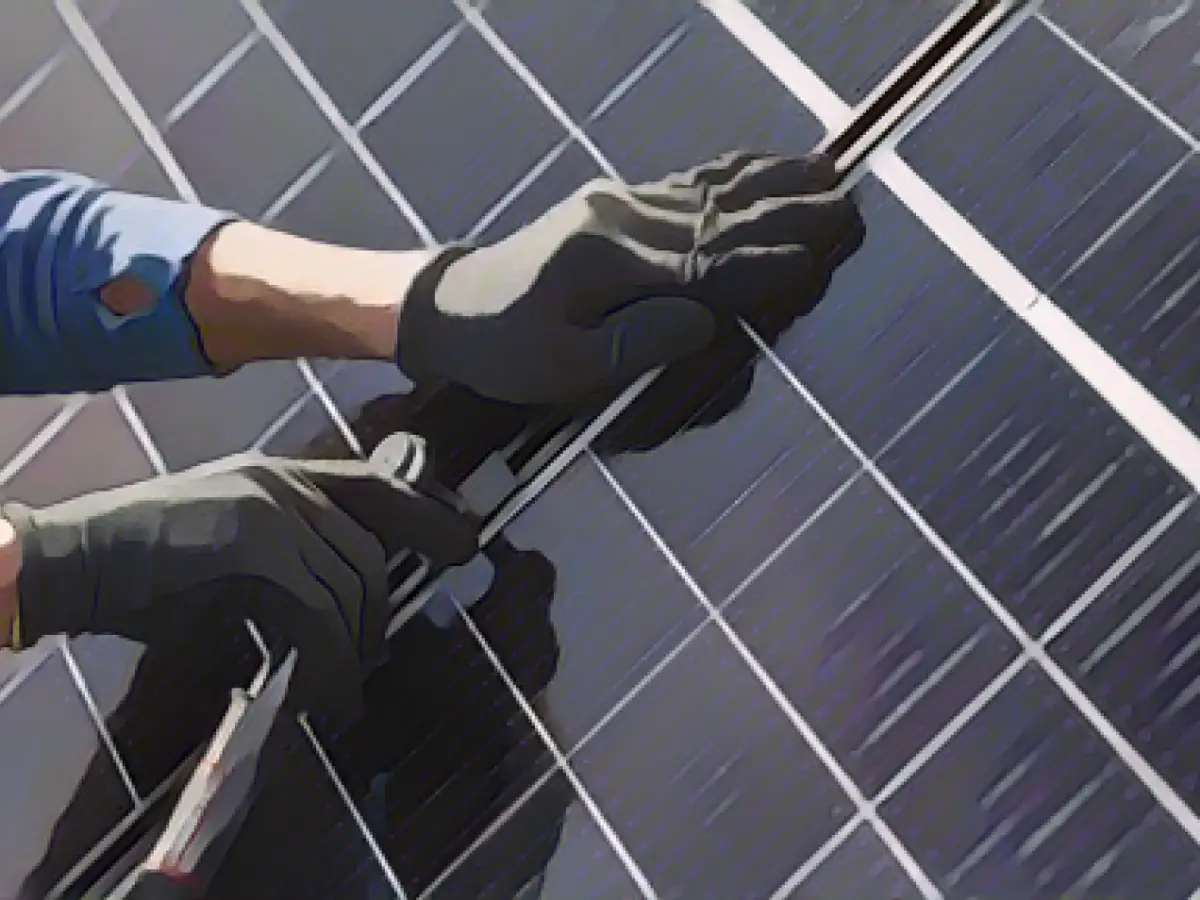Bundesrat Stalls Traffic Light Coalition's Growth Package for Now
The Bundesrat, Germany's upper house of parliament, has temporarily halted the growth package proposed by the traffic light coalition to revitalize the lagging German economy. On Friday, the chamber of states convened a mediation committee in response to the perceived unfair distribution of costs associated with the Growth Opportunities Act. Now, it's time to find a compromise. Lower Saxony's Minister President Stephan Weil (SPD) voiced his concerns, labeling the proposal as a contract at the expense of others.
The Growth Opportunities Act includes tax relief for businesses through 2028 and an expedited approval process. Relief is projected to amount to €7 billion annually. The law's keystone feature is a bonus for investments in climate-friendly measures. Companies investing in energy efficiency will receive direct financial support, amounting to 15% of their expenditures. Moreover, the law includes incentives to revitalize the housing construction sector and encourages additional research investment.
Financial Burdens on the Federal States and Municipalities?
Weil calculated that this legislation would result in a total loss of €32 billion for the states by 2028. He estimates that the federal government will be responsible for approximately €12 billion of these losses, while the remaining €20 billion would be shouldered by the states and local authorities. Municipalities, already grappling with financial pressures, are expected to pay an additional €2 billion. "This is an urgent warning," declared Weil, emphasizing the importance of strengthening the municipal level.
Weil further contended that the law is expected to boost investments by only 0.6%. "This does not appear to be a targeted proposal," he stated.
Criticism of the Unilateral Approach from Saxony's Minister President
Michael Kretschmer (CDU), Saxony's Minister President, criticized the federal government's unilateral approach, remarking: "It is certainly not the way, and it is not confidence-building to present this law without consultation, without reasonable cooperation - under the slogan: eat or die." He emphasized that Germany's constitution does not condone such behavior and that it goes against the country's democratic values.
The Bundesrat's Concerns about the Economic Situation
The Bundesrat's concerns over the economic situation led to a review of the tax cuts and incentives included in the Growth Opportunities Act. Critics, like Lower Saxony's Minister President Weil, argue that the law's tax reductions could lead to substantial financial losses for states and municipalities, further complicating their existing financial challenges.
Sources:
Enrichment Insights
Economic Instability and Uncertainty
- Government Instability: The potential collapse of Chancellor Olaf Scholz's government in 2024, as well as the uncertainties around the next government and economic policy, may deter investments and delay economic recovery [1].
- Tariff Threats: The re-election of former U.S. President Donald Trump and his potential levy of tariffs on key trading partners pose a substantial risk to Germany's export-oriented economy and growth prospects [1].
Structural Issues
- Skilled Worker Shortage: Germany faces an ongoing shortage of skilled workers, hindering economic growth [1].
- Excessive Bureaucracy: Germany's business environment is burdened by excessive bureaucracy, hampering innovation [1].
- Underinvestment: Germany has historically underinvested, relative to its GDP, further hampering growth prospects [1].
Fiscal Policy Concerns
- Debt Brake: The debt brake, which limits federal borrowing to 0.35% of GDP, poses a constraint on fiscal policy [3].
- Court Ruling on the Second Supplementary Budget Act 2021: A recent Federal Constitutional Court ruling has nullified the Second Supplementary Budget Act 2021, limiting funding for economic stimulus programs [3].
Political and Legal Objections
- Federal Constitutional Court Ruling: The Federal Constitutional Court's nullification of the Second Supplementary Budget Act 2021 has hindered the implementation of economic stimulus programs, contributing to the halt in the Growth Opportunities Act [3].
- Bundesrat Objections: The Bundesrat has raised objections to legislative resolutions, leading to delays and potential vetoes on economic policies [2].
These factors have contributed to the halt of the Growth Opportunities Act, highlighting the complex challenges Germany must address to achieve a robust economic recovery.








